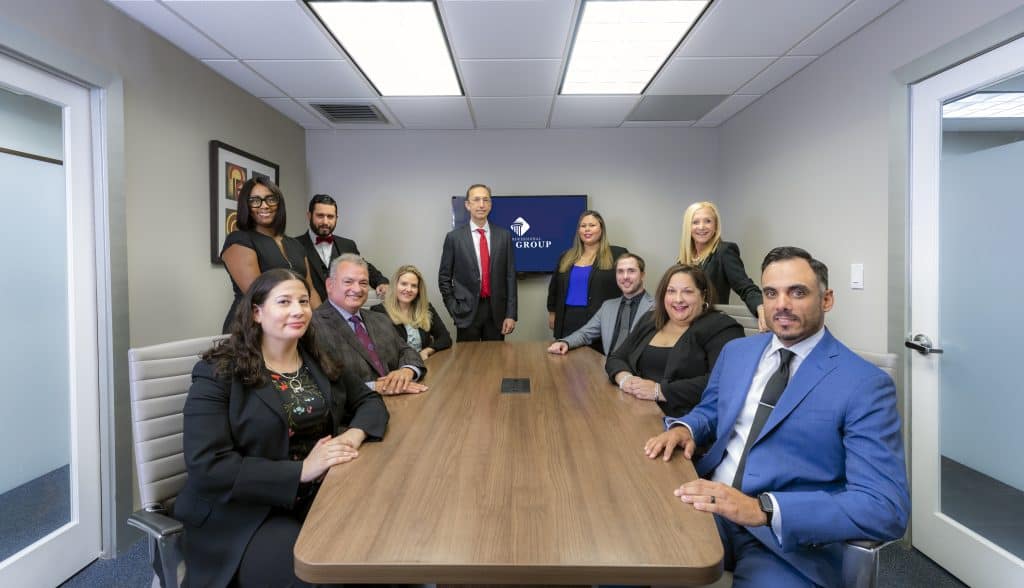According to the National Oceanic Atmospheric Administration, out of the 15 named storms in 2018, eight of them were hurricanes, and two were above Category 3. An average hurricane season has roughly 12 named storms, six hurricanes, and three major hurricanes. Last year, Hurricane Michael left Florida with $6.2B dollars in insured losses, as reported by The Florida Office of Insurance Regulation for reporting period through April 26, 2019. More than 146,000 property insurance claims were filed estimated in excess of $6.2B in insured losses. Read our Hurricane Michael insurance claim report.
“Hurricane season makes most Floridians uncomfortable. There is a lot of uncertainty, and the experience with recent storms has shown how much damage can occur anywhere in the state. Property owners should be prepared,” Florida Professional Law Group Attorney Marc Ben-Ezra said.
Here are some things you should do to prepare for the hurricane season:
1. Document Everything, It’s Key
It’s important to take pictures and recordings of your property and its contents before hurricane season starts. This will serve as some proof to your insurance company that damage you are reporting is not preexisting. Additionally, when you have damage, document again. The burden of proof will be on you if you don’t keep good records. Keep a record of:
- your property’s condition and contents prior to the insured event
- what happened to cause damage
- how you mitigated further damage from occurring.
Even down to the conversations you have between you and the insurance company, you want to document all of it. Let your abundance of evidence do the talking when submitting an insurance claim.
Documentation is key; that’s why we offer a pre-claim service to assist property owners, called Ready Now Insurance Claim Preparedness Program. Florida Professional Law Group will conduct a pre-claim inspection of your property, so if and when damage occurs, you already have the property’s information on file.
2. Read Your Insurance Policy
It’s important to understand what your insurance policy covers. You should make it a priority to understand what is currently covered and what is not. Your policy is comprised of 4 parts: the Declaration pages, the Forms, the Endorsements, and the Summaries.
Declaration Pages
The Declaration pages include:
- Coverage A – your dwelling (your home)
- Coverage B – other structures such as fences, garages, and sheds
- Coverage C – your personal property (If you can flip the house upside down, what falls out of it)
- Coverage D – additional living expenses.
Forms
Forms are normally written by the ISO (Insurance Services Office) and approved by the insurance regulator. The Forms tend to be known as the fine print.
Endorsements
Endorsements are additions or modifications to the original policy. Endorsements are important to understand because they tend to take away coverage that is promised to you in the Forms. They rarely add coverage. Insurance companies are allowed to add Endorsements that can change policy because Forms are industry-wide. Thus, Endorsements allow insurance companies to customize their policies. All Endorsements are listed by code and placed on the Declaration pages. Many carriers have “Florida only” endorsements which are designed to take away coverage where it’s needed the most – for example, hurricanes and mold.
Summaries
Lastly, the Summaries section is provided by the insurance company to list your coverages in a way that is easily understood. Florida law considers the Summaries section as explanatory but not enforceable. An insurance company cannot reduce coverage by putting something in a Summary. It’s good to know that it’s there, but be aware that it’s not a part of the policy. It’s just to help you.
Learn more about homeowners insurance policies.
If Damage Occurs
It’s the insurance company’s obligation to send a field adjuster to inspect the property once a claim has been filed. However, field adjusters work for the insurance company, not you. They may not value your damage fairly or properly, for a few different reasons.
First, they may not thoroughly investigate and price like, kind, and quality which may undervalue your unique damage. For example, if you have 7” baseboards and they estimate the replacement cost for 5” baseboards, then that is neither a fair nor proper comparison.
Second, the field adjuster may assume some of the damage is unrelated to the claim and thus exclude it in your estimate.
Finally, they are adhering to their employer’s agenda. As claims professionals, Florida Professional Law Group has seen this happen many times. We have worked with clients who were underpaid or altogether denied, and we were able to recover much more than the insurance company originally offered. See our settlement examples.
Florida Professional Law Group has been dedicated to assisting clients with new, underpaid, and denied insurance claims since 2012. We are located in Hollywood, FL, and serve the entire state. Call us at 800-LAW-4141 for a free, no-obligation consultation. Remember, we don’t get paid until you get paid.
“We can’t control the weather, but we can get more peace of mind by being prepared. Florida Professional Law Group helps with all of the steps of the insurance claims process. Give our friendly claims team a call, and they will get you started,” said Ben-Ezra.


